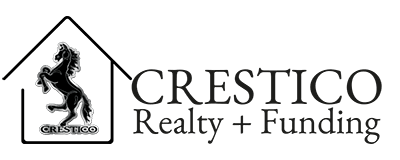The American Dream: Home Ownership
The National Association of Home Builders ("NAHB") recently reported that Americans still believe in home ownership.
Americans still believe that a strong housing industry means more jobs and more money to keep local economies growing, and that the government should continue to promote homeownership through tax incentives.
A new survey found that nearly three out of four American voters—73 percent—believe that it is reasonable and appropriate for the federal government to provide tax incentives to promote homeownership.
And 81 percent of voters are convinced we should do more to improve the housing finance system because we need policies that encourage homeownership if we want to rebuild the middle class.
"Every new single-family home built creates three full-time jobs and increases the property tax base that supports local schools," said National Association of Home Builders (NAHB) Chairman Bob Nielsen, a home builder from Reno, Nev. "The American public recognizes that to restore the health of the economy, we need policies that support opportunities for homeownership."
The poll, which was conducted on behalf of NAHB, also found that an overwhelming majority of respondents oppose eliminating the mortgage interest deduction and would be less likely to support a candidate for Congress who wants to do away with this vital tax incentive.
"Despite the current housing downturn, Americans still see homeownership as a key building block of being in the middle class and creating strong jobs in their communities," said Celinda Lake, president of Lake Research Partners, which conducted the survey along with Public Opinion Strategies.
Other key survey findings include:
•75 percent of voters say that owning a home is the best long term investment they can make.
•73 percent of voters who do not now own a home say that it is a goal of theirs to eventually buy a home.
•Among voters who are aware of proposals under consideration by Washington policymakers to raise the down payment requirements for a home loan, 92 percent believe it will make it more difficult to buy a home.
Neil Newhouse, partner and co-founder of Public Opinion Strategies, said, "The administration and some in Congress are floating plans to curtail or even abolish the mortgage interest deduction and impose changes that would make it much more difficult and expensive to get a home loan. This is in direct opposition to the views of most Americans, who want the government to encourage growth in the housing market and to maintain tax incentives to keep housing affordable."
http://www.nahb.org/generic.aspx?sectionID=1047&genericContentID=162180
For more information, please visit www.crestico.com.
